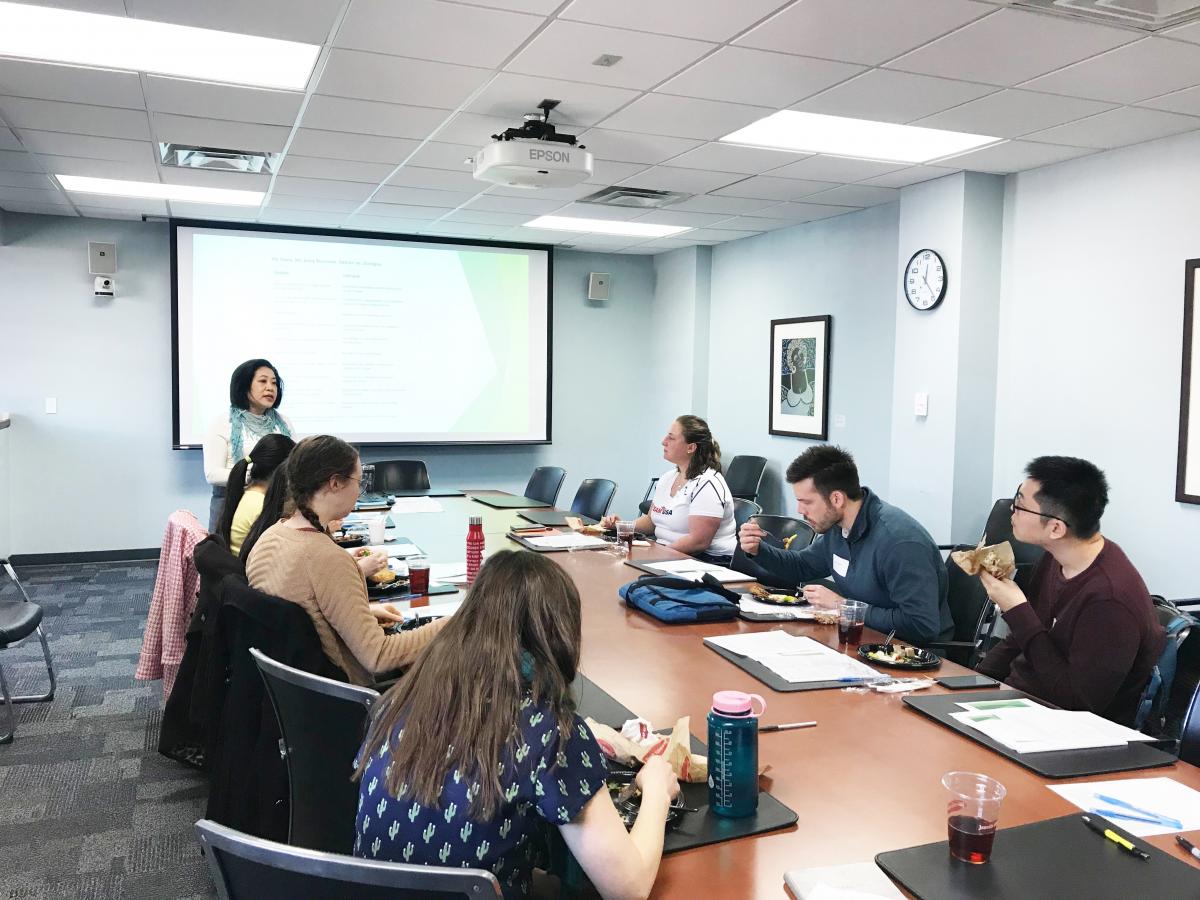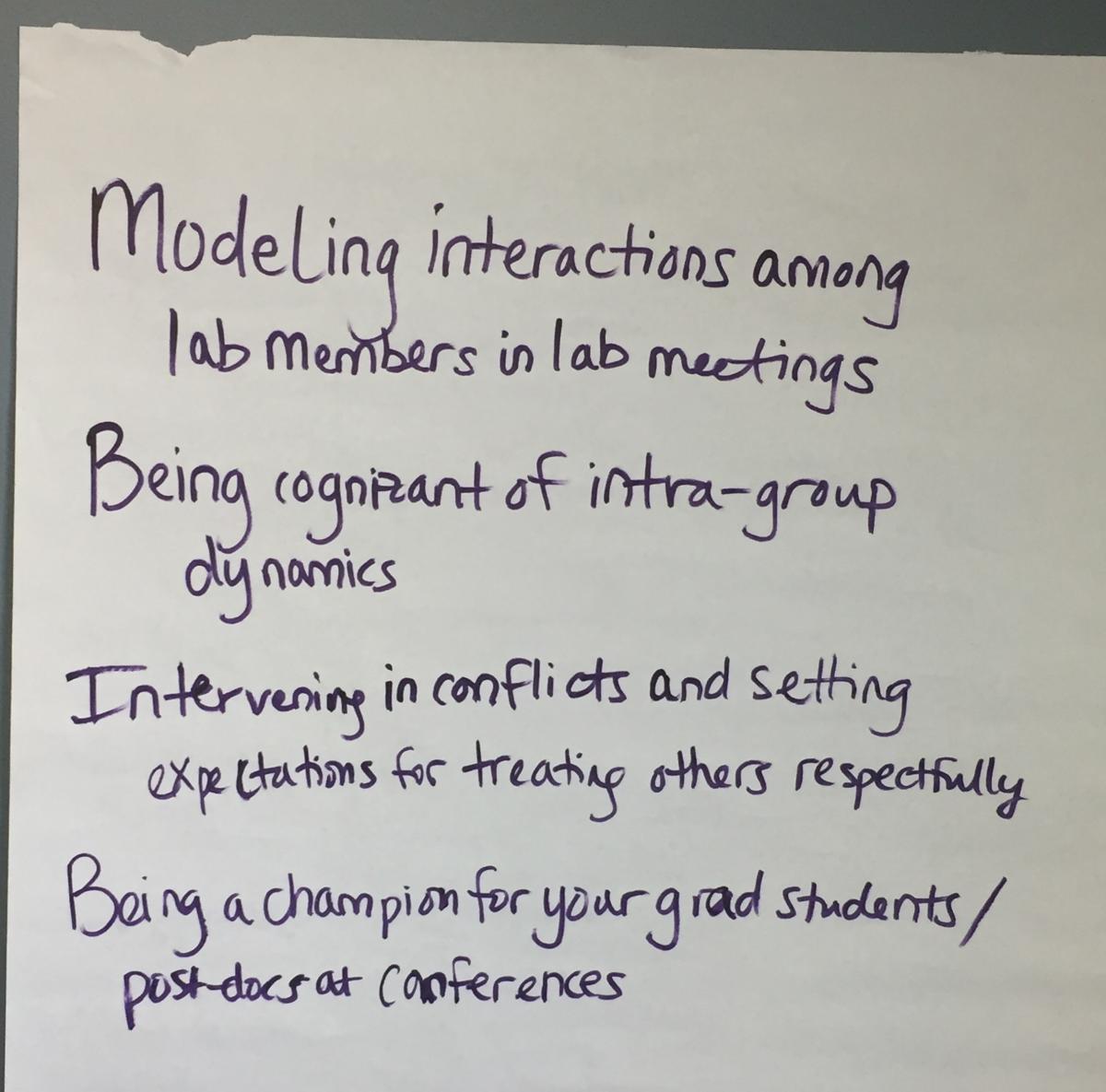 As part of the University of Maryland’s membership in the National Science Foundation’s CIRTL Alliances for Graduate Education and the Professoriate (AGEP) grant, the Graduate School recently launched a series of training workshops on diversity and inclusion for graduate students, postdoctoral fellows and faculty on the campus.
As part of the University of Maryland’s membership in the National Science Foundation’s CIRTL Alliances for Graduate Education and the Professoriate (AGEP) grant, the Graduate School recently launched a series of training workshops on diversity and inclusion for graduate students, postdoctoral fellows and faculty on the campus.
In the months ahead, Dr. Zakiya Whatley will be working with graduate students on third spaces and tool building, and Dr. Belinda Huang (‘12 PhD, Education) has been appointed to work with postdocs and faculty. Whatley is the Program Manager here at UMD for the Biological Sciences graduate program. Prior to that, she was a professor of Biology at Gettysburg College. Huang has served on the faculty of George Washington University, U.C. Berkeley, University of Pennsylvania in Higher Education Administration and Asian American Studies. She was also the Executive Director of the National Postdoctoral Association.
Last week, Huang facilitated the first of many programs for postdoctoral researchers, entitled Inclusive Excellence: Creating and Inclusive Climate Within and Outside the Classroom. The goals of the training were threefold: recognition of a working inclusive climate, offering tools, such as active listening, to resolve difficult situations, and implementing the use of inclusive language.
Huang opened the training by discussing the differences between ‘Dialogue vs. Debate’ and the importance of setting ground rules at the onset of creating an inclusive environment. Postdoctoral researchers were asked anonymously to write about a difficult situation they had experienced as a graduate student or postdoctoral researcher in a course, the lab or academic setting with a mentor or other individual(s). Participants then discussed these scenarios in small groups, and recorded what could have made these situations more inclusive, how faculty or others could set up the lab or classroom to make sure all views were represented; and how to use inclusive language.
Postdoctoral researchers that attended the workshop commented that they learned about how positions of power affect the climate in the lab or other settings, racial bias, how language barriers may create exclusion, the importance of being transparent, and being aware of other individuals’ feelings.
Observed Dr. Heather Yarger, “this training was extremely helpful and should be required for everyone (especially those in power/leadership roles) as a reminder of ways to create an inclusive and supportive environment for all people and backgrounds (which does not end at race, gender, ethnicity, but also includes mental health, SES, gender identity, etc.). We should all do better to create an inclusive environment, model that behavior, and stick up for those that may not feel they have the power to do so.”
Participants found the small group discussions highly effective because the format allowed them to share experiences, validate examp les, and offer an opportunity to debrief with colleagues. The resulting rich discussions led to many observations about inclusion in the academic spaces such as setting early expectations of behavior in potential academic settings and then model those behaviors with students, lab members, and colleagues. Another idea brought forth by groups was the notion of having a mentor/buddy to help navigate a new environment which may then facilitate an understanding of intra-group dynamics. Postdocs also suggested intervention in conflicts as they arise, thereby modeling respectful dialogue and advocacy for others, including such spaces as conferences. Lastly, it was observed that it is by addressing language barrier issues and dominant group nationality, that one can ensure equity and mutual understanding between international and U.S.-born graduate students and postdoctoral researchers. Someone also remarked that all of these strategies take tremendous commitment and collective effort, but one that is critical to academe.
les, and offer an opportunity to debrief with colleagues. The resulting rich discussions led to many observations about inclusion in the academic spaces such as setting early expectations of behavior in potential academic settings and then model those behaviors with students, lab members, and colleagues. Another idea brought forth by groups was the notion of having a mentor/buddy to help navigate a new environment which may then facilitate an understanding of intra-group dynamics. Postdocs also suggested intervention in conflicts as they arise, thereby modeling respectful dialogue and advocacy for others, including such spaces as conferences. Lastly, it was observed that it is by addressing language barrier issues and dominant group nationality, that one can ensure equity and mutual understanding between international and U.S.-born graduate students and postdoctoral researchers. Someone also remarked that all of these strategies take tremendous commitment and collective effort, but one that is critical to academe.
Dr. Yaqiong Xiao, concluded, "we may not be born equal but we have the equal rights to live in the world and pursue a better life. If more and more people become conscious, open, and active, the world would be a better place eventually."
For more information on future workshops contact Belinda Huang and Zakiya Whatley.
